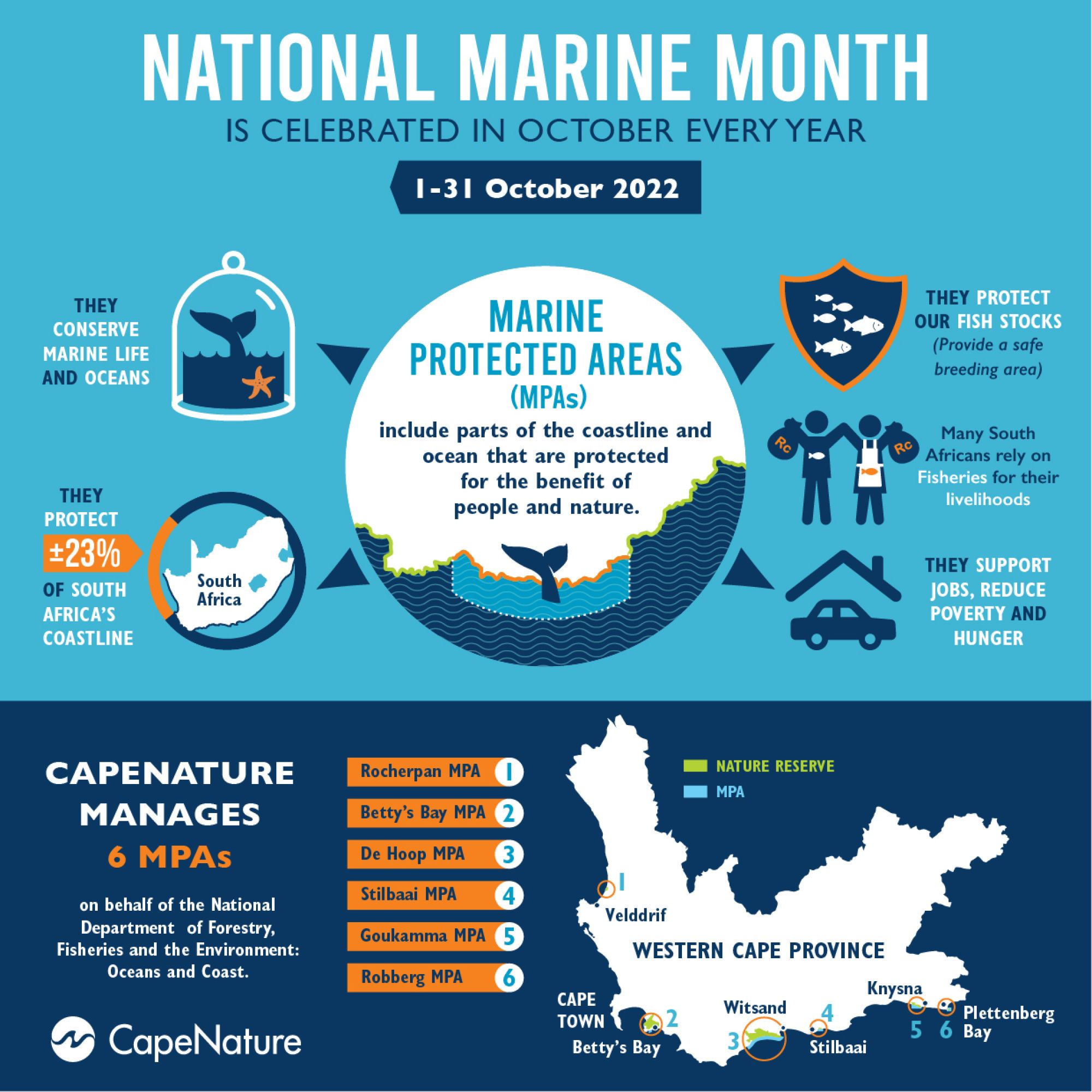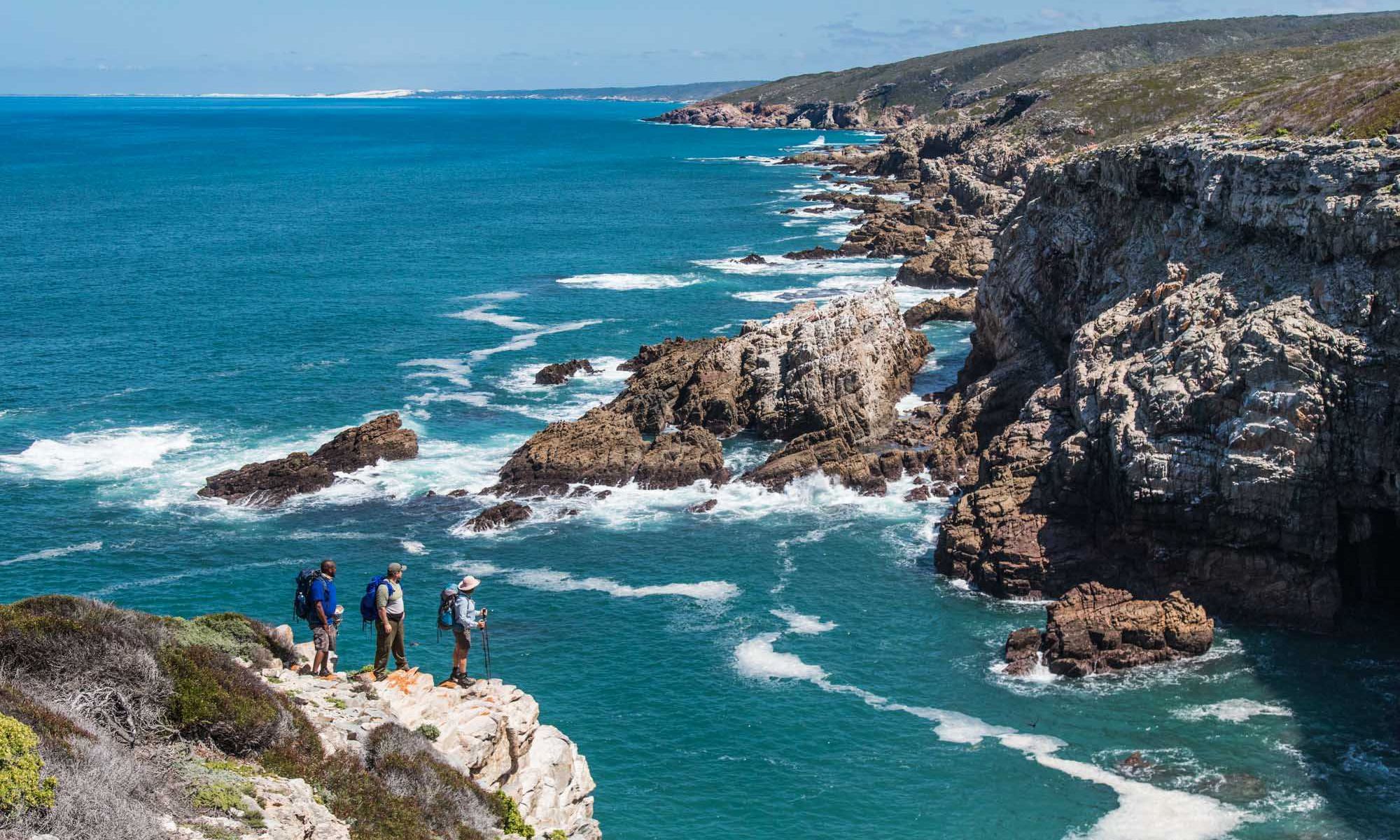
Marine Month
October marks National Marine Month. Due to the ever-increasing pressures on the ocean ecosystems and species from pollution, overfishing, mining, energy generation projects and changing climate, there is a critical need to set aside parts of each oceanic ecosystem for conservation purposes. The identification of these sites follows a structured ecosystem and species monitoring process to firstly identify the ecosystems and then, through stakeholder engagement with all the ocean users, to identify the most appropriate areas to conserve. Identifying how each area contributes to the bigger ocean conservation network is vital.
These conserved areas provide scientists with an opportunity to monitor change in climate where they can compare the impact of change on used areas and conserved areas. Understanding the value of conservation areas and marine protected area networks in mitigating the impacts of climate change is a critical field of study and education. We can all play a vital role in the conservation of our marine ecosystems and species too. Do not leave plastic or solid waste on the beaches or throw it into the sea. Beach clean-ups are vital as every piece of fishing line, net or plastic can be a potential snare for a marine animal. Abide by the fishing limits on the fishing permits, they are there for a reason.

Related News
How can I assist you today?
How can I assist you today?



